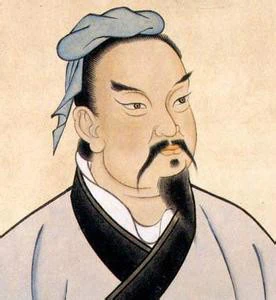
In 500 BC, King Helü of Wu had a problem. He had a small army, and a neighboring enemy could invade his state. So he asked for help from one of the most famous military strategists at the time: Sun Tzu.
When Sun Tzu assessed the situation, he assured King Helü that he could defeat the more powerful and larger invading army.
King Helü was skeptical of Sun Tzu’s claim that he could turn anyone into a fighting soldier, so he challenged him with the task of turning the palace women (“those spoiled, soft concubines,” as he referred to them) into a fighting force.
Sun Tzu accepted the challenge and trained the women on all the proper maneuvers. He also selected two senior women to serve as his platoon leaders and directed them to enforce discipline in their units.
When Sun Tzu ordered the exercises to begin, the women just giggled and laughed.
Sun Tzu reacted by stating that his instructions might not have been clear, so he re-explained himself in simple terms. He clarified that all the women should assemble their weapons when the drums rolled and fall in line like soldiers.
Again, the women just giggled.
Sun Tzu then stated: “If words of command are not clear and distinct, if orders are not thoroughly understood, then the general is to blame. But, if orders are clear―and I have been clear―and the soldiers nevertheless disobey, then it is the fault of their officers.”
As he finished his sentence, Sun Tzu unsheathed his sword and chopped off the heads of both platoon leaders.
For Sun Tzu, war was about life and death, and he wanted everyone to realize how deadly serious he was.
He immediately assigned two new women as platoon leaders and gave them similar instructions.
They followed the orders without any hesitation.
How to use this mental model
As a leader, it is your responsibility to ensure that your instructions are clear to your employees. Not theirs. Before you reprimand someone for not following your directive, ensure that there wasn’t any ambiguity on your end (or worse, hidden intimidation that made it uncomfortable for a subordinate to ask you for clarification).
Note: The short story is based on a few sources, including the History Channel’s Art of War show about Sun Tzu (video snippet here) and this article [image source].
This is an excerpt from “Mental Models for Effective Managers.”
